It’s a January morning, and I’m speaking to Steve Hackett. He cuts an unassuming figure, and looks boyish for a man who will be turning seventy-four in February. I’ve been commissioned to talk about ‘The Circus and the Nightwhale, Hackett’s most confident sounding work in decades, although he’s happy to talk about Genesis, the prog band that spawned two stellar vocalists - Peter Gabriel and Phil Collins - and two albums that stand with the best of the genre: ‘Selling England By The Pound’ and Wind & Wuthering’. I have my notebook and laptop ready, but Hackett disarms me with his knowledge of Irish culture. "Of course, the Irish connection. Ireland has many wonderful singers. There's heart there, and vibrato. I love the sound Boy George had, and Feargal Sharkey, and many have had the 'Balladeer's voice.' They have great, great voices. Many people might be surprised to hear that." I’m one of those people, but if Hackett’s resumé is anything to go by, I shouldn’t feel surprised. Since leaving Genesis in 1977, Hackett has steered an admirable solo career that has seen collaborations with musicians of all walks of life. Hackett might be the only person to have worked with Steve Howe and Randy Crawford, although the list extends to include members of the classical world (of which Hackett’s brother John is one particular advocate.) Hackett apologises at one point in the interview for “name dropping”, although this is an English trait that stems from his days with Genesis, a band full of public-school graduates. "The English Public School system has a lot to answer for," Hackett points out. "I think it fucked them up enormously - and they've agreed with me. If you're designed to be the next 'Viceroy of India', well, the job's only open for one!" Naturally verbose (the word “stentorian” comes up three times in the interview), Hackett arrives at the interview with an eagerness to discuss his craft. At the time of writing, his new single ‘People of The Smoke’ has amassed one hundred and thirty one thousand views on YouTube. With its pristine production design and barrelling guitar-sound, it delivers on the principles of progressive rock, although the multitude of vocals recalls the baroque textures of Queen during the A Day At the Races era. I point out this reading to Hackett, which surprises him. "The last thing I had on my mind was Queen when I was doing that track.” He pauses, before continuing: “I think Queen are a very, very good band. It's interesting that Queen appeared on the scene just after Genesis. I remember hearing the demo tapes, and thinking, 'Wow! If this is the demo tapes, I wonder what the album is going to sound like.'" Hackett says he even went as far as to recommend the band to Charisma founder Tony Stratton Smith ("I think you should sign them,") but ultimately it was "Brian May's tenacity" that secured Queen's position in the higher echelons of esoteric rock. It's at this moment I tell Hackett that Brian May told me that I reminded him of Rory Gallagher, which tickles the Genesis musician no end. "Fantastic," he laughs. "Rory was a great player. I met him once [because we] played on the same album: Box of Frogs [sic]. It was the second reformation of The Yardbirds, and I suspect the album would have done better if they'd called it 'The Yardbirds.' [It was] a very interesting lineup, and Rory was one of them." Hackett sounds proud of the band's efforts on '20/20 Vision', and suggests that the track didn't make the final cut for "political" reasons. Nevertheless, Hackett acknowledges the influence of the band, stating that he enjoyed being "one of their number." "It felt like a coming of age, or a closing of the circle," Hackett states, clearly still moved by the experience. "Nice to be on the same album as Rory Gallagher, Jimmy Page....Pete Vettese on keyboards, and basically the original line-up of The Yardbirds without Keith Relf." I decided to change the subject back to Queen. Can he confirm that Roger Taylor was once pegged for the role of percussionist? "I've heard this," Hackett replies. "But it must have been before my time." Hackett ruminates to himself. The impression I get is this: Taylor may have auditioned for Genesis, but he seems happier that Phil Collins won the gig. "Roger's an incredibly talented guy, but it's one of those 'what if's'?" I can say: What if Tony Iommi stayed with Jethro Tull? What if Kenney Jones left Faces for Paul McCartney & Wings? And what if The Beatles had followed George Martin's lead and released the hackneyed 'How Do You Do It?' as their debut single? But for all the conjecture, none of these avenues were explored, leaving us with the narrative that's before us. "There's various band lineups I was supposed to be part of," Hackett explains. "Keith Emerson and Jack Bruce were going to form something and they asked me to join them. That one was a near miss. Things always flounder on the rock of internal politics. I was due to do a band with John Wetton, and it was with Rick Wakeman and one or two other people." The greater the talent, the wider the option, it would seem. "At one point Chris Squire asked me to join Yes," Hackett reveals. This fell through, although a friendship developed, which led to the exhilarating Squackett record. "The family tree of proggers and players.." Hackett searches for the correct adjective, and carries on: "You could say it's incestuous." It's a very funny line, but Hackett sounds humbled when he says that guitarists from all walks of life listen out for each other, and "admit the influence." "Listening isn't just one way," Hackett admits. "Very often the people you meet that you've liked are the very people who have liked your stuff. I'm lucky to be amongst that number." His newest album, ‘The Circus And The Nightwhale’, is a culmination of these influences. It conveys sorrow, elation, frenzy and introspection. ‘Get Me Out’ and ‘Wherever You Are’ offer a rare insight into the workings at chez Hackett, delivering something that is naked and surprisingly tender to listen to. I’m keenly aware that songwriters are uncomfortable with individual selection (Hackett jokes that the album is a “new baby”), but I’m anxious to hear about his creative process. "Favourite lyrics? I like to think I've been as revealing as possible. There are love songs that talk about the difficulty of establishing myself and Jo as a couple. So, I like to think that it's autobiographically revealing. And as much as I might feel vulnerable wearing my heart on my sleeve doing that, I'm coming to terms with the fact that people have liked what they've heard. It seems like there's grounds for support." It’s a long way from ‘Wind & Wuthering’, an album driven by Scottish warriors, Messianic reincarnations and mini operettas on Jewish-Arabic relations. Long considered a hardcore favourite, it also represented a midpoint for Genesis, who were slowly moving away from form to express themselves more directly and with greater attention to heart. Indeed, it’s my favourite Genesis album, and it’s one that Hackett is deservedly proud of. "At that point, the band had evolved sufficiently as players and as a four man team. It's the album where Jo, my wife, first discovered Genesis. She liked the songs and stories. And for all sorts of reasons, I think it's very well recorded; I like the surround mix very much.." Hackett takes a second to credit Nick Davis on the mix, particularly his work on 'Afterglow' , a power ballad that anticipated the yearning and romance of 'Follow You, Follow Me'. "It's a lovely track," Hackett beams. "I was playing guitar on it, in the style of not just George Harrison, but The Beatles. All these very simple chords: ding, dong, ding, dong. I thought, 'Instead of doing it on keyboards, I'll make it a two-note guitar part.' I tried to give it a bell-like, Beatle sound. Again, the influence of 10cc with the voice-loops was something Phil warmed to. I got him to do that, and it sounds marvellous. It hasn't really been bettered, those voice loops. Damn good." Indeed, there are three "Phil vocals" on every note, and Hackett opts to describe the vocals as "slightly breathy," "slightly husky", and "slightly brass-like". "This was before the era of sampling as we know it," Hackett highlights. "We were all grabbing the faders to make these chords up: a choir of Phil." We’ve already talked about Queen, but as Hackett has mentioned 10cc, I elect to ask Hackett about their influence. Genesis keyboardist Tony Banks is a fan of theirs, for one thing. "10cc were a very interesting band," Hackett agrees. "In terms of production technique, and the use of 'gizmo' and all of that. The 'gizmo' was another way to drive the string, in the same way that tapping is another way to drive the string." Hackett counts the fingers that he uses for tapping ("I have three different ways of tapping,") before admitting that he hasn't placed a hand on a "'gizmo' for quite some time." He might use one in the future: "Another way to play guitar." "Perhaps there are people out there playing [the guitar] differently in the great multiverse," Hackett chuckles silently. It's at this time I turn back to my journal and notice that I've highlighted "bass guitar" in bright yellow. Did Hackett play this instrument on The Circus And The Nightwhale? "On a couple of tracks, I'm playing bass, [but] normally I don't, because I don't consider myself to be a bass player. When I was playing that, I was literally doubling the lead line a lot of the times. [But] when I was working with Ben Fenner, he has a bit of a guitar collection, and he said, 'Why not try this? It's a short scale bass, and it might suit you.' It ended up being a really interesting sound." Hackett says he's "apologetic" when he says he plays bass, but that's because he's measuring himself against the likes of John Entwistle and Chris Squire. "The bass players are there to connect up these parts into something fluid," Hackett reveals. He lets out a wistful breath when he says he never worked with Jaco Pastorius, the man who helped to "completely reinvent what bass was all about, and to turn it into a lead instrument," although he did enjoy conversations with the musician. "They all live on in spirit," Hackett says ruefully. "Not to mention, John Wetton; a fabulous bass player. I saw him with King Crimson around the time of Larks' Tongues in Aspic. Phil Collins and I went down to see them, along with Pete Banks and Tony Kaye. We were all there, watching the new lineup of King Crimson in Guilford, and later that night I bumped into John, and told him I'd been to [his] gig." As it happens, Hackett enjoyed a camaraderie with Wetton that lasted a lifetime. "I'm a cell in the body of music," Hackett giggles. "All these things that connect up the body. The thing we all worship then, and all worship now." My mind returns to ‘Wind & Wuthering’, and I find myself humming the bass to ‘Eleventh Earl of Mar’, a galloping part that emulates the sounds of horses marching to almost certain betrayal. What did Hackett make of Mike Rutherford’s bass playing? "I think that Mike was a very interesting player. I gave him a baritone guitar that I was using as a guitar rather than a bass, and I said, 'I think you'll get more use of it.' Straight away he started using it with one of those duo-fuzz boxes that we were fond of, and he really gave it a hefty sound. A very good bass player, and a very good writer of songs. I suspect he's underrated as a bass player [although] I suspect he never really wanted to be a bass player. I think he wanted to be a lead guitarist, which of course he got to explain later on, but I think he ended up playing bass by default. This was back in the days of Anthony Phillips, so I think the bass just sort of ended up in his hand.” It’s clear from the interview that in spite of their musical harmony, there was disharmony that nearly threatened to upend Genesis at various points in their career. "It's funny with Tony Banks," Hackett sighs. "I worked with him for many years, and I think he thought of me at the time as a competitor. I was anything but: I wanted to get the best out of him. I wanted to be an ally, and a friend. I wanted to get the best out of him, because I realised he was capable of really great things. I'm not sure it worked the other way around. Maybe he came around to realising it a lot too late to do anything about it." Hackett laughs at some of the arguments (“handbags at dawn.) Hackett sympathises that some of his bandmates were "terrorised into excellence", but maintains that it didn't make them the easiest to work with. Hackett credits Phil Collins as a calming influence on the band. "He came out of stage school, so he'd seen it all before. He'd been on stage, he'd been the 'Artful Dodger' before he'd touched the drums. Luckily, with his experience, he was able to dispel the atmosphere with humour." Hackett wasn't keen on the band's competitive side, which might explain why he quit in 1977, but he's enormously proud of their achievements. "I love them all for what they've done creatively, and individually. There's not been a band to touch them, apart from The Beatles, as far as I'm concerned." I’m impressed by some of Nad Sylvan’s work. Regularly positioned to the front of The Steve Hackett Band, Sylvan nominally performs some of the trickier Genesis vocals. "Nad came recommended by one or two people. I saw him on film performing with, I think, Agents of Mercy." Hackett says he knew Sylvan from his work with Nick D'Virgilio. "You could say that Peter Gabriel and Phil Collins both had that brass-like qualities. They have differences, but they have similarities, where they could impersonate each other, and it's the same thing with Nad. He's able to impersonate both singers, and does a very good impression of Richie Havens. We were doing 'Icarus Ascending', and it really sounded like he was channelling Richie Havens. He deepened his voice." When I interviewed Hackett in 2017, he told me that Sylvan introduced himself to Hackett as a "vocal chameleon." Hackett reiterates the term again to describe his collaborator. Hackett says that he wrote 'Devil's Cathedral' in the "Genesis style". "There is a track on the new album which is called 'Taking You Down', and that's Nad as well. The other vocals I've done: Either me, or combination of vocals I've done with me and Amanda Lehmann. Very often multi-layered.” Returning to Sylvan’s vocal dexterity, Hackett mentions the influence Sam Cooke held on a number of white English singers. "Normally you find it with British singers," Hackett chuckles over Zoom. "I suspect they all want to be with Ray Charles." He uses “stentorian" for the second time in the interview. It won't be the last. "Vibrato, the thing that characterised the young Eric Clapton," Hackett says, clearly listening to the trembling solos on John Mayall's Bluesbreakers in his head. In his effort to improve his vocal abilities (Hackett never sang on a Genesis album), he set out to deliver a similar sense of vibrato on his recordings. "At one point, I took some lessons after I recorded a vocal myself. I thought I did a passable impression of Donovan." He coughs before returning to the narrative, statint he took some advice from his brother's girlfriend, Maria Bovino. "She gave me some singing lessons, and told me I could sing very high, and that was very good. That gave me confidence." He reiterates that it doesn't come "naturally" to him, but ever the working musician, he constantly reminds himself to return to the essence of the instrument. Considering the personal nature of the lyrics, it’s no surprise that The Circus and the Nightwhale features some of the guitarist’s most truthful exhibition of vocals. "I used to try screaming more, but now I'm aware I have a sort of 'balladeer' voice.You've got to work with your own character. If I can't be Ritchie Havens, I will veer towards Roy Orbison. But there's only one Ritchie Havens, and only one Roy Orbison." While we’re on that topic, there’s only one Steve Hackett! Photos by Tina Korhonen
Label Articles:-
JSH Records (4)Band Links:-
http://www.hackettsongs.com/https://www.facebook.com/stevehackettofficial/
https://twitter.com/HackettOfficia
Label Links:-
http://www.the-hit-parade.co.uk/beginners.htmlPlay in YouTube:-
Have a Listen:-
Picture Gallery:-
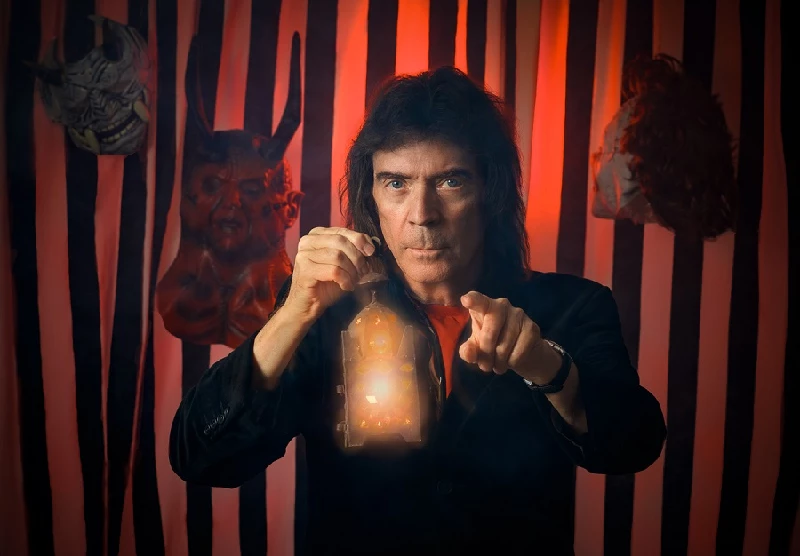
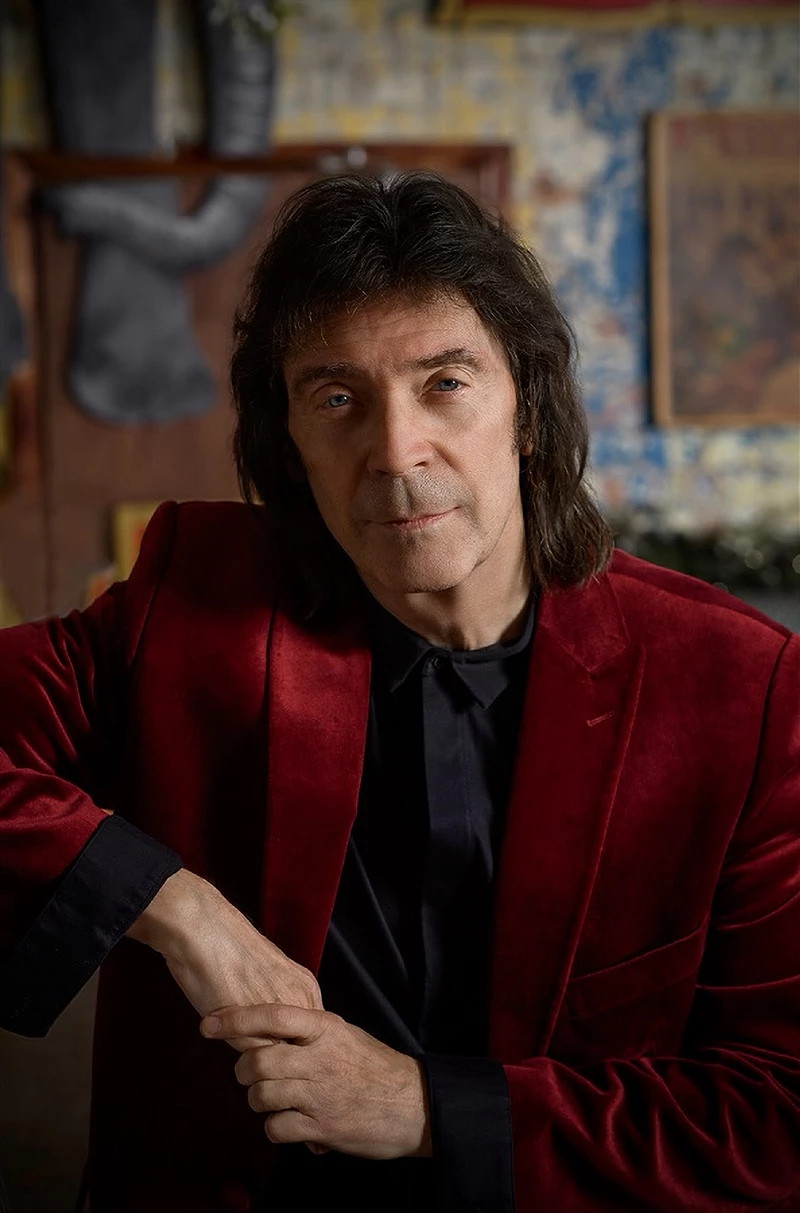
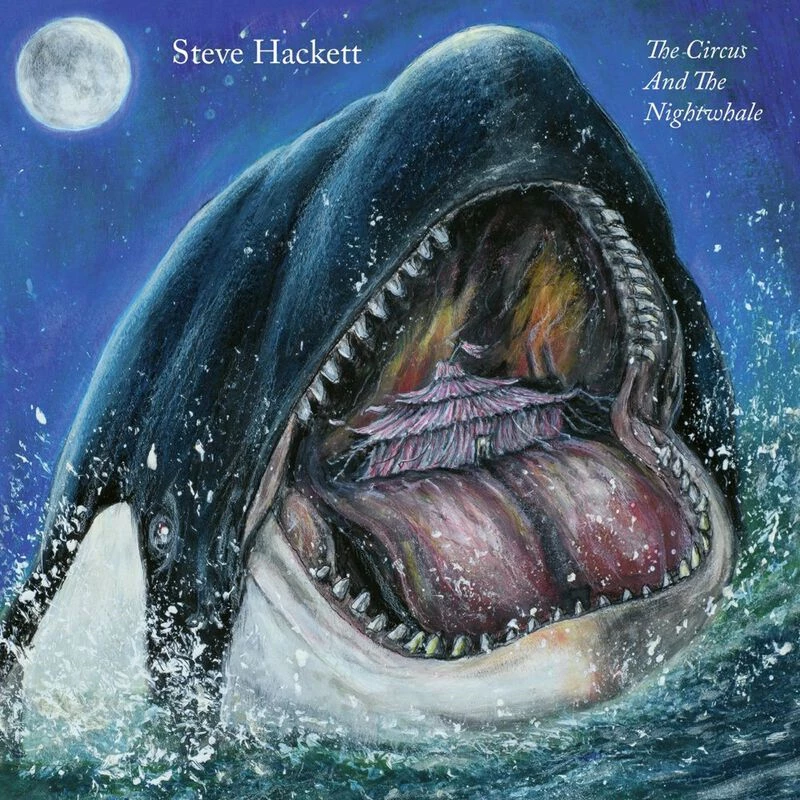
intro
Prog guitar legend Steve Hackett talks to Eoghan Lyng about his new album ‘The Circus and the Nightwhale’ and his years with Genesis,
interviews |
|
Interview (2021) |
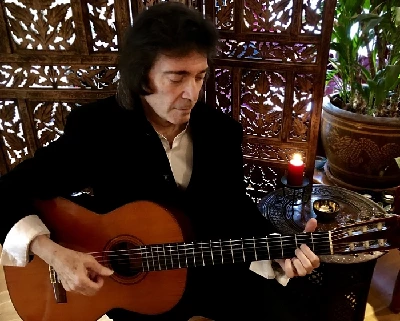
|
| Legendary prog rock artist and former Genesis guitarist Steve Hackett chats to Andrew Twambley about his storied career and new acoustic LP 'Under a Mediterranean Sky'. |
| Interview (2013) |
live reviews |
|
Apollo, Manchester, 24/9/2021 |
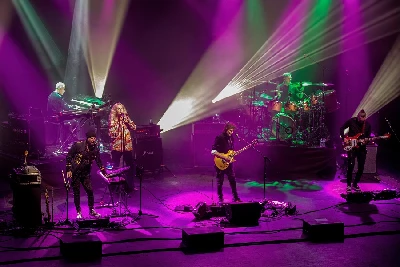
|
| Neil Swift at the Manchester Apollo watches Steve Hackett plays Genesis' entire double live album 'Seconds Out' as well as highlights from his own back and current catalogue. |
photography |
|
Photoscapes (2022) |
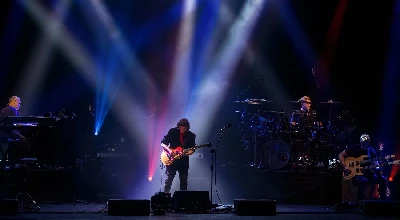
|
| Andrew Twambley takes photographs of ex-Genesis guitarist Steve Hackett with his band at the Manchester Apollo. |
reviews |
|
At the Edge of Light (2019) |
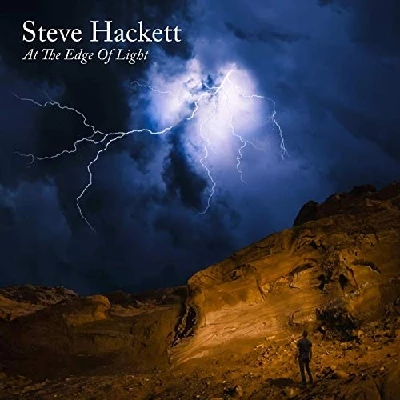
|
| Lavish and ambitious prog rock on latest album from former Genesis guitarist and solo artist Steve Hackett |
most viewed articles
current edition
Carl Ewens - David Bowie 1964 to 1982 On Track: Every Album, Every SongArmory Show - Interview with Richard Jobson
Colin Blunstone - Thalia Hall, Chicago, 16/7/2025
Bathers - Photoscapes 1
Visor Fest - Valencia, Spain, 26/9/2025...27/9/2025
John McKay - Interview
Billie Eilish - O2 Arena, London, 10/7/2025
Robert Forster - Interview
Sir Tim Rice - Interview
Loft - Interview
previous editions
Heavenly - P.U.N.K. Girl EPManic Street Preachers - (Gig of a Lifetime) Millennium Stadium, Cardiff, December 1999
Beautiful South - Ten Songs That Made Me Love...
Pixies - Ten Songs That Made Me Love...
Oasis - Oasis, Earl's Court, London, 1995
Paul Clerehugh - Interview
Trudie Myerscough-Harris - Interview
Prolapse - Interview
Doris Brendel - Interview
Peter Perrett - In Dreams Begin Responsibilities Interview Part One
most viewed reviews
current edition
Phew, Erika Kobayashi,, Dieter Moebius - Radium GirlsAmy Macdonald - Is This What You've Been Waiting For?
Sick Man of Europe - The Sick Man of Europe
Alice Cooper - The Revenge of Alice Cooper
Davey Woodward - Mumbo in the Jumbo
Blueboy - 2
Cynthia Erivo - I Forgive You
Lucy Spraggan - Other Sides of the Moon
Bush - I Beat Loneliness
Suzanne Vega - Flying With Angels
related articles |
|
Fairport Convention: Live Review (2014 |
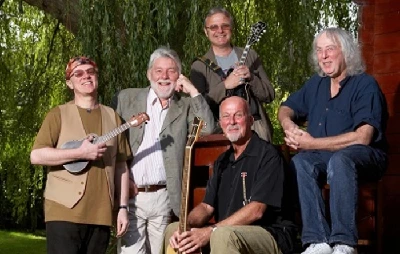
|
| Nick Dent-Robinson enjoys this year's Fairport's Cropredy Convention, which as well as Fairport Convention also saw sets from Chas 'n' Dave, Marillion, Steve Hackett's Genesis Extended and remarkable Welsh singer-songwriter Deborah Rose |
Pennyblackmusic Regular Contributors
Adrian Janes
Amanda J. Window
Andrew Twambley
Anthony Dhanendran
Benjamin Howarth
Cila Warncke
Daniel Cressey
Darren Aston
Dastardly
Dave Goodwin
Denzil Watson
Dominic B. Simpson
Eoghan Lyng
Fiona Hutchings
Harry Sherriff
Helen Tipping
Jamie Rowland
John Clarkson
Julie Cruickshank
Kimberly Bright
Lisa Torem
Maarten Schiethart